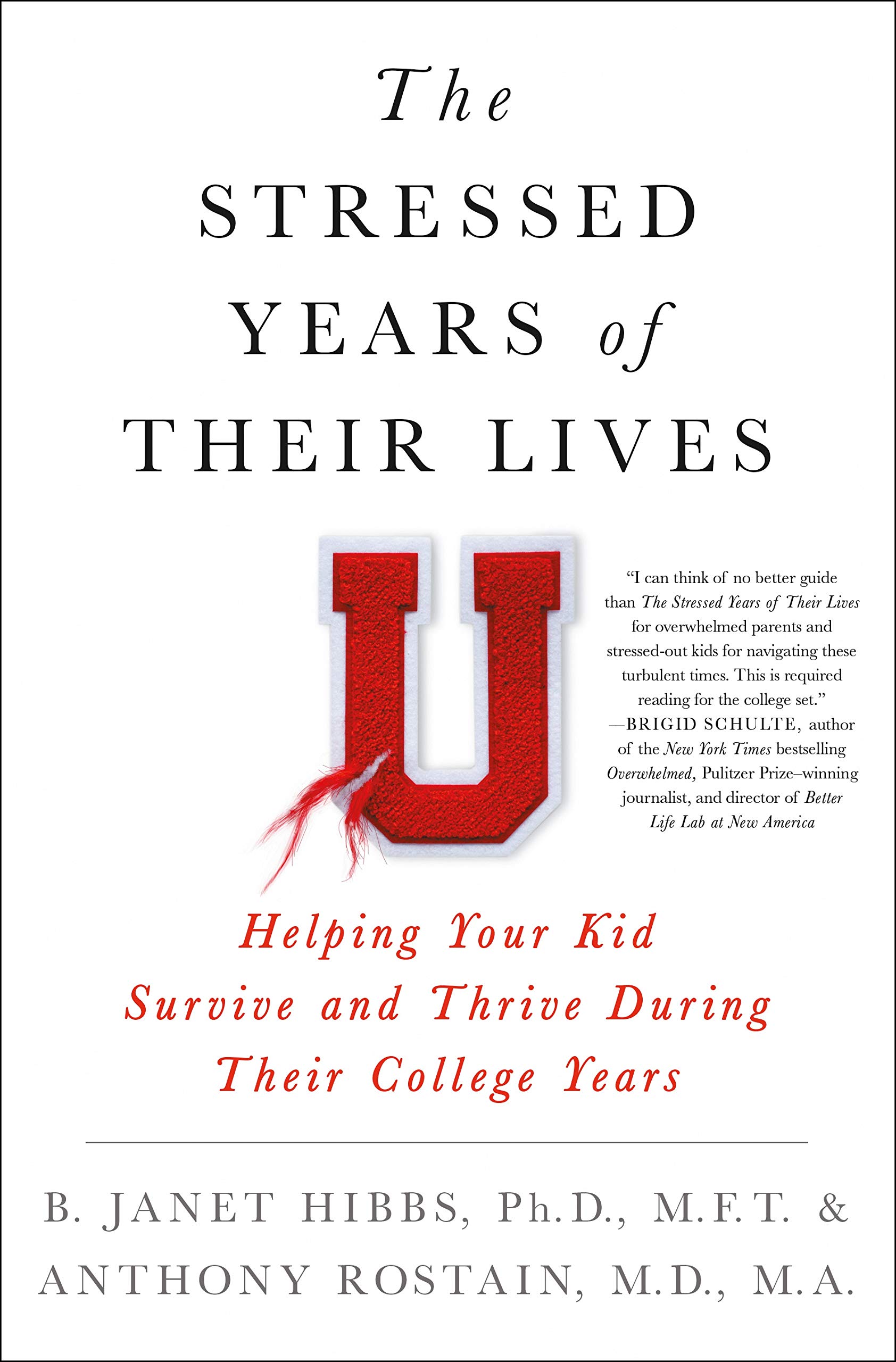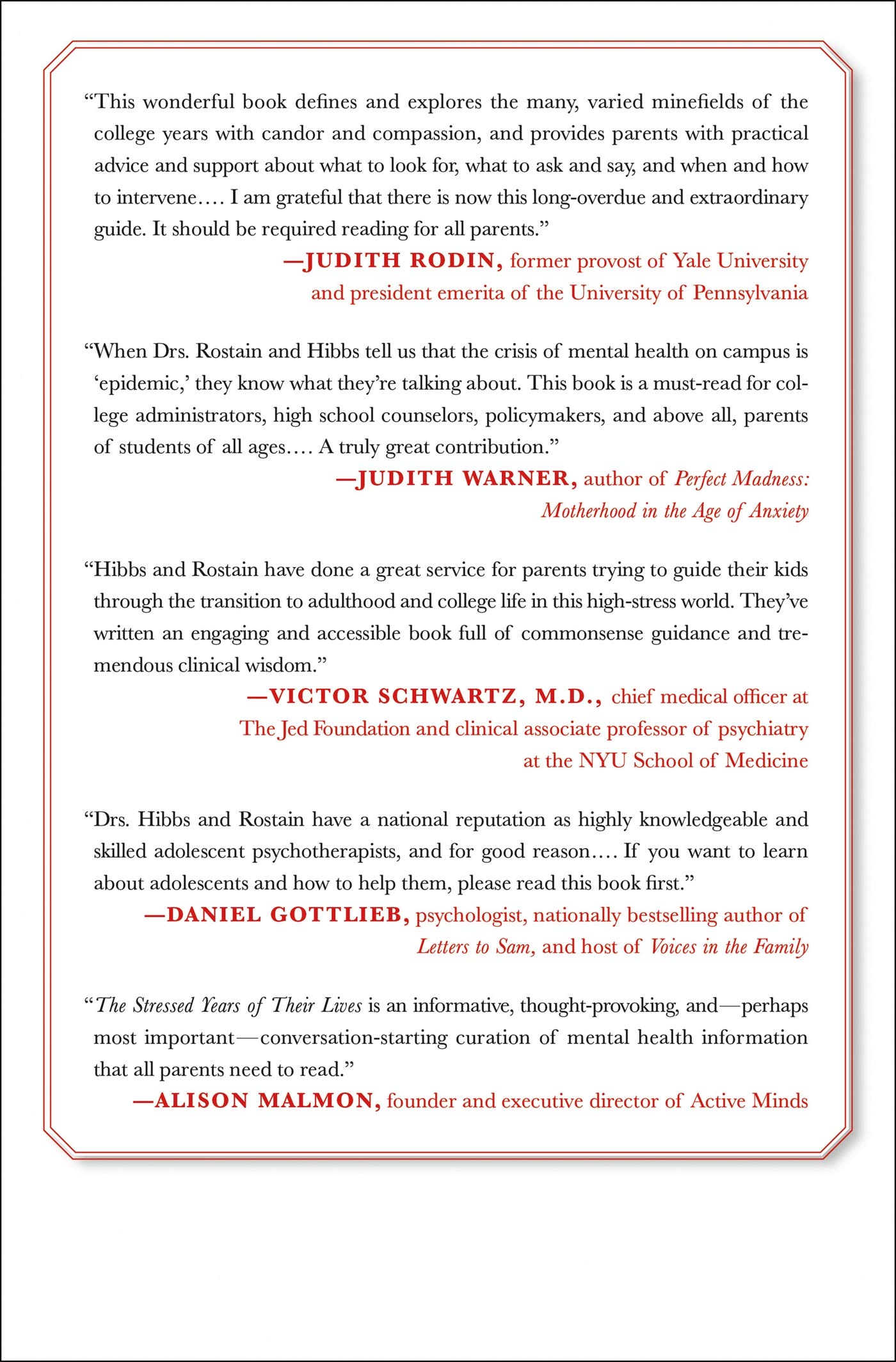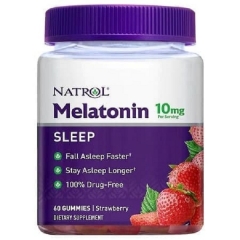-
 Thanh toán đa dạng, linh hoạtChuyển khoản ngân hàng, thanh toán tại nhà...
Thanh toán đa dạng, linh hoạtChuyển khoản ngân hàng, thanh toán tại nhà... -
 Miễn Phí vận chuyển 53 tỉnh thànhMiễn phí vận chuyển đối với đơn hàng trên 1 triệu
Miễn Phí vận chuyển 53 tỉnh thànhMiễn phí vận chuyển đối với đơn hàng trên 1 triệu -
 Yên Tâm mua sắmHoàn tiền trong vòng 7 ngày...
Yên Tâm mua sắmHoàn tiền trong vòng 7 ngày...
The Stressed Years of Their Lives: Helping Your Kid Survive and Thrive During Their College Years
-

- Mã sản phẩm: 125011313X
- (118 nhận xét)

- Publisher:St. Martin's Press; First Edition, 2nd printing (April 23, 2019)
- Language:English
- Hardcover:336 pages
- ISBN-10:125011313X
- ISBN-13:978-1250113139
- Item Weight:1.15 pounds
- Dimensions:6.33 x 1.16 x 9.6 inches
- Best Sellers Rank:#282,580 in Books (See Top 100 in Books) #121 in Popular Adolescent Psychology #222 in Parent Participation in Education (Books) #228 in Aging Parents (Books)
- Customer Reviews:4.6 out of 5 stars 118Reviews

Mô tả sản phẩm
About the Author
B. Janet Hibbs, M.F.T., Ph.D. has held faculty positions for more than 15 years in graduate programs for psychologists and marital and family therapists. She is the author of Try to See It My Way: Being Fair in Love and Marriage.
Anthony Rostain, M.D., M.A., is a nationally-recognized expert in child and adolescent psychiatry, and a professor of psychiatry and pediatrics at the Perelman School of Medicine, University of Pennsylvania, and at the Children’s Hospital of Philadelphia (CHOP).
With B. Janet Hibbs, Anthony is the co-author of The Stressed Years of Their Lives.
Product Description
From two leading child and adolescent mental health experts comes a guide for the parents of every college and college-bound student who want to know what’s normal mental health and behavior, what’s not, and how to intervene before it’s too late.
“The title says it all...Chock full of practical tools, resources and the wisdom that comes with years of experience, The Stressed Years of their Lives is destined to become a well-thumbed handbook to help families cope with this modern age of anxiety.” ―Brigid Schulte, Pulitzer Prize-winning journalist, author of Overwhelmed and director of the Better Life Lab at New America
All parenting is in preparation for letting go. However, the paradox of parenting is that the more we learn about late adolescent development and risk, the more frightened we become for our children, and the more we want to stay involved in their lives. This becomes particularly necessary, and also particularly challenging, in mid- to late adolescence, the years just before and after students head off to college. These years coincide with the emergence of many mood disorders and other mental health issues.
When family psychologist Dr. B. Janet Hibbs's own son came home from college mired in a dangerous depressive spiral, she turned to Dr. Anthony Rostain. Dr. Rostain has a secret superpower: he understands the arcane rules governing privacy and parental involvement in students’ mental health care on college campuses, the same rules that sometimes hold parents back from getting good care for their kids. Now, these two doctors have combined their expertise to corral the crucial emotional skills and lessons that every parent and student can learn for a successful launch from home to college.
Review
"This book is a hopeful and essential guide that promotes emotional health and mental fitness in young people. The authors address the realities of mental illness and offer models for prevention, treatment, and recovery. A must-read for parents, educators, and clinicians." ―Patrick J. Kennedy, author of A Common Struggle, and sponsor of Paritytrack.org
“Childhood is disappearing for young adults, with the pressure to perform, the seductions of social media and the fears of an uncertain future, as stress, anxiety and depression are reaching epidemic proportions. I can think of no better guide than The Stressed Years of Their Lives for overwhelmed parents and stressed-out kids for navigating these turbulent times. This is required reading for the college set.” ―Brigid Schulte, author of the New York Times bestselling Overwhelmed: Work, Love and Play when No One has the Time, Pulitzer Prize winning journalist, director of The Better Life Lab at New America
“College-related anxiety and pressure on both parents and children begins long before the admissions process, changes and intensifies in college and has been escalating, alarming educators, mental health professionals and, of course, families themselves. Drs. Hibbs and Rostain have battled in this arena with courage, insight and a wealth of professional training and experience. This wonderful book defines and explores the many, varied minefields of the college years with candor and compassion, and provides parents with practical advice and support about what to look for, what to ask and say, and when and how to intervene. Having seen these pressures both as a parent and university president, I am grateful that there is now this long-overdue and extraordinary guide. It should be required reading for all parents.” ―Judith Rodin, former Provost of Yale University and President Emerita of the University of Pennsylvania
“When Drs. Rostain and Hibbs tell us that the crisis of mental health on campus is ‘epidemic,’ they know what they’re talking about. They’ve not only studied the problem extensively, they’ve treated it and lived it, and as this measured, compelling, and vitally important book makes clear, they’re not prone to exaggeration. They’ve also proven themselves uniquely adept in moving the conversation from diagnosis to treatment and prevention. This book is a must-read for college administrators, high school counselors, policymakers and above all, parents of students of all ages, who (if they’re like me) will start implementing its insights long before they reach its end. A truly great contribution.” ―Judith Warner, Washington Post bestselling author of Perfect Madness: Motherhood in the Age of Anxiety
“Hibbs and Rostain have done a great service for parents trying to guide their kids through the transition to adulthood and college life in this high stress world. They’ve written an engaging and accessible book full of common sense guidance and tremendous clinical wisdom. They provide both specific advice about the important issues to consider and what parents and kids can do to be best positioned to address those issues in order to succeed and thrive.” ―Victor Schwartz, M.D., Chief Medical Officer at The Jed Foundation and Clinical Associate Professor of Psychiatry, NYU School of Medicine
“The Stressed Years of Their Lives is an informative, thought-provoking and―perhaps most importantly―conversation-starting curation of mental health information that all parents need to read. With robust research woven throughout deeply compelling stories of real young adults and their families, the book paints a clear picture of the struggles that young adults of today are facing; the way parents, and young adults, and schools can be partners in success; and the message that help is available and there are so many reasons to have hope.” ―Alison K. Malmon, founder & executive director of Active Minds
"This is the type of book every parent should read before discussions of college even begin. Packing in just the right amount of statistics and real-world scenarios, two doctors offer sound advice on how parents can better prepare their children for the challenging college years that lie ahead of them." ―Kirkus
Excerpt. © Reprinted by permission. All rights reserved.
The Stressed Years of Their Lives
Helping Your Kid Survive and Thrive During Their College Years
By B. Janet Hibbs, Anthony RostainSt. Martin's Press
Copyright © 2019 B. Janet Hibbs and Anthony RostainAll rights reserved.
ISBN: 978-1-250-11313-9
Contents
Title Page,Copyright Notice,
Dedication,
Acknowledgments,
PART ONE OF STRESS and RESILIENCE,
1. Fault Lines in the World of Today's Youth,
2. Before You Go: Social-Emotional PREP,
3. Welcome to Campus: Overcoming Mindset Barriers to Success,
4. What to Expect When Johnny's Got Issues,
5. How to Plan — and How to Follow Through,
PART TWO OF CRISIS and RECOVERY,
6. Risky Business: The Adolescent Brain,
7. Anxiety and Depression,
8. Crisis Care,
9. Adjusting to the Boomerang Kid,
10. From Recovery to Relaunch,
11. Recasting the Safety Net,
Appendix,
Notes,
Index,
About the Authors,
Copyright,
CHAPTER 1
Fault Lines in the World of Today's Youth
Academic intelligence offers virtually no preparation for the turmoil — or opportunity — life's vicissitudes bring.
— DANIEL GOLEMAN, EMOTIONAL INTELLIGENCE
Carson was the salutatorian of his large public high school, earning the school's English award and a partial merit scholarship to a top-rated college. He felt proud and enormously relieved. His hard work had paid off. Without that scholarship, the commuter branch of the state university would have been his destination. And his parents had generously offered to help repay his student loans from the prestigious institution that had accepted him.
Their hopes, his dreams, mocked him as he sat in Freshman English, staring at his paper, marked with a large red "D". The class hour passed in a blur, and Carson next found himself on the eighth floor of the University Library overlooking the Great Hall below. He observed himself, contemplating what he would hit if he jumped. The glassed-in archive displays? The long polished table profiling the many recent faculty publications? A fellow student wafted through his thoughts. A girl in his French class had committed suicide only a month into the semester. She'd had a wonderfully droll sense of humor. Carson hadn't understood why she'd killed herself. It seemed she had everything going for her. So sad, so strange. But now, panicked and believing his scholarship jeopardized, his future ruined, he grasped her desperation.
A wave of vertigo forced him back from the library's overhang. He sat down and numbly hit the speed dial for the college hotline. Another student answered and kept Carson on the phone long enough for him to calm down and agree to go to the walk-in campus counseling service. And so, Carson resisted his terrible and momentary impulse. Very fortunately for him, his crisis of confidence was not superimposed upon major depression or bipolar disease. His momentary panic eventually led to therapy, which promoted a greater resilience and better ability to tolerate setbacks and distress.
In addition to vertigo and the absence of mental illness, the serendipity of many emotional skills came to Carson's aid that afternoon. A strong connection to his family and friends and a willingness to seek help also enabled him to step back from the balcony and make that call. His family environment had fostered the noncognitive skills that empowered him to ask for help when needed. His parents consistently praised his effort more than the outcome; they quietly noticed and supported his interests. When Carson made mistakes, they joked, "pobody's nerfect." His family talked through problems but didn't solve them for him. His emotional preparation broke through his fleeting despair. As his thinking cleared, he recalled how he had coped with another D — on a high school calculus test. At first he had freaked out — "my high school ranking will drop" — then he told his parents, who encouraged him to talk with the teacher. It was this emotional resilience and preparation for adversity that saved him when his academics failed him. Whether coming early or late to these skills, we firmly believe that all students can learn them.
Yet the sad truth is that many students are not so fortunate or so well-prepared when caught in the epidemic of college-age mental health problems. The current and incoming generations of college students need to be better equipped with the maturity boost that social-emotional intelligence provides. Being better prepared for the roller coaster of college life will reduce the chances of their coming off the rails.
And what about the parents on the other side of these frightening experiences? Instead of the nostalgic truism that college will be "the best years of your life," we hear from countless parents concerned about how their children's lives are falling apart. Despite all they've done to educate and support their talented child, they see signs of wobbling begin to appear in the form of poor coping, anxiety, depression, or emotional upheaval.
As two well-established experts on late adolescent psychiatry and family psychology, we've coached families through such times, giving parents tools to help their once-confident students preserve or regain their ability to organize time, work, and even the basics of sleeping and eating. Yet, many students are unprepared for the removal of home's invisibly embedded emotional and cognitive scaffolding.
In his role as Professor of Psychiatry and Pediatrics at the University of Pennsylvania Perelman School of Medicine and co-chair of the President's and Provost's Task Force on Student Psychological Health and Well Being, Dr. Rostain has closely watched the dramatic rise in campus mental-illness rates with deep concern. Colleges and universities across the country are reporting an explosion of mental health problems verging on an epidemic, with a skyrocketing number of students seeking help. Rostain is very familiar with the risks, challenges, and complex systems issues facing young people, and has made it his mission to find solutions for these students and parents alike. As a family psychologist, faculty member, and clinical supervisor, Dr. Hibbs has had decades of experience helping parents and students cope in challenging and crisis-laden times.
As parents ourselves, we know all too intimately the gnawing anxiety that can be fed by pervasive media coverage of such campus hazards as hazing, binge drinking, drug use, and sexual assault, as well as the quieter desperations of "not fitting in" or feeling that you're "not making it." When these all-too-common risks give rise to emotional disorders or psychiatric illnesses, students and parents alike can be overwhelmed.
That was Dr. Hibbs's experience when her son Jensen suffered a depression that required a medical leave from college. Despite her professional expertise, Jensen's harrowing crisis left Hibbs humbled and scrambling for answers, while more deeply informing her of the preparation, knowledge, and skills that parents and students need. Following Jensen's treatment by Dr. Rostain — and his subsequent recovery — we resolved to coauthor The Stressed Years of Their Lives, a book that provides solutions, strategies, and solidarity for parents who want to help their students avoid, resolve, or recover from a mental health problem or crisis. It is also a book to give hope and support to students, through the stories of their peers. We thank Jensen, as well as the many students, parents, and educators who so generously lent their stories to this book.
However rapid the recent and ongoing shifts in our culture, we're optimistic that today's parents have better tools at their disposal than ever before to build a sturdy and enduring emotional scaffold for their children. To help you assess its stability, we'll show you how to strengthen some key skills — namely resilience, executive functioning, and healthy habits of independent living — that can reinforce a young person's ability to cope with the coming challenges. Though individual lives are complicated, we are convinced that both parents and students alike can benefit through the thoughtful discussions, skills, and lessons described in this book. We hope that our experiences and insights will help many generations to come.
When the Best Are Stressed
Beyond panic and resilience, Carson's story acquaints us with a generational truth. Like Carson, everyone will experience a crushing disappointment at some point in time, yet in the college of a generation past, a single bad grade didn't portend doom. Nor was life success so inextricably linked with a linear trajectory from high school through the perfect college and on to a high-paying career, without allowing for a single stumble.
Increasingly, however, it can often seem as if this is the case. Contemplating adulthood, today's youth confront a gloomy forecast of increased competition and narrowing possibilities. "The college degree is becoming the new high school diploma," The New York Times recently intoned, "the new minimum requirement, albeit an expensive one, for getting even the lowest-level job."
Given the pressure to succeed, it's no wonder that today's adolescents vie with adults for the dubious title of "America's Most Stressed." The younger group may even be pulling ahead: According to a recent survey by the American Psychological Association, teens experience higher stress than adults, even in summer. That pressure, the APA survey revealed, leaves a third of teens feeling overwhelmed, depressed, and fatigued. Nor does it show any sign of letting up soon: 34 percent of the teen survey respondents expected their stress levels to rise even higher in the year ahead.
And how are both groups handling the pressure? Not well: neither the teens nor the adults reported doing enough to manage their stress. Most were indulging in unhealthy behaviors: skipping meals or "stress eating" and getting nowhere near enough exercise or sleep. By college, stress combusts with mental health diagnoses and an increased risk of self-harm.
Parents sound confused and alarmed: What's the deal with kids' stress levels today? And how long does it take for a kid to grow up? We often hear parents voice variations of a standard lament: "We're at our wits' end. We've struggled to give him every chance to succeed — more than we had at his age, certainly — so what's gone wrong?"
Beginning with the Millennials and continuing in Generation Z (also known as iGen), students experience the very real burdens of constant striving on behalf of uncertain futures, amidst swiftly changing political and economic landscapes. They're also stressed by the 24/7 availability of the Internet, by social media pressures, and by the resulting metrics of constant comparisons, whether social or academic. GPAs, the dream college, scholarships, prestigious summer internships, and later, starting salaries, are all insubstantial proxies for meaning and purpose, as one MIT professor observed. Today's pressures can overwhelm brains already struggling with developmental tasks and insecurities, among them: forming an identity, developing friendships, exploring romantic relationships, and germinating the seeds of a career.
Parents are stressed too. The parental urge to protect their young can result in over-parenting, which paradoxically hinders the emotional skills needed for a successful launch. These multiple forces often come to a head in the crucible of college life and immediately thereafter, when many stress-induced emotional problems first appear. These two phenomena — college stressors and the emergence of mental health problems — feed into one another in a closed loop, increasing the pressure of both.
Let's crunch the numbers on college mental health, then take a look at the uniquely stressful climate in which young people are coming of age today. With this understanding, we'll see how parents can teach — and students can learn — what's truly necessary to thrive in college and beyond.
Crunching the Numbers
In recent years there has been no shortage of reports about students' stress responses to the academic pressure cooker of college, with antidepressant use, mental health problems, and prescription-medication misuse all on the rise. "Rates of anxiety and depression have soared in the last decade," notes The Chronicle of Higher Education. The rise in the rate of college students seeking counseling is five times higher than the average rate of enrollment growth.
According to the American College Health Association's recent annual survey, 1 in 4 college students was either diagnosed or treated for anxiety in the prior year. This is approximately the same number as those reporting that a cold or flu hurt their academics in the prior 12 months. Untold millions went undiagnosed and untreated. Another large student survey reveals a glimpse of the magnitude of the campus problem: more than half reported the experience of overwhelming anxiety during the prior school year, while about a third reported that depression had significantly affected their academic performance. The numbers only go up from there, with even more feeling "hopeless" and "overwhelmed." Yet only about one-fourth of the affected students received counseling for these conditions, and many of those in counseling often dropped out of treatment prematurely.
The following lists summarize this alarming trend:
Mental Health–Related College Problems
• Anxiety is the most common student mental health problem.
• Almost one-third of all college students report having felt so depressed that they had trouble functioning in the last twelve months.
• Mental health issues in the college student population, such as depression, anxiety, and eating disorders, are associated with lower GPA and higher probability of dropping out of college.
• More than 80 percent of college students felt overwhelmed by all they had to do in the past year, and 45 percent have felt things were hopeless.
• Minority students are less likely to seek treatment.
Mental Health Issues Can Be Deadly
• Suicide is the second leading cause of death among college students, claiming the lives of 1,100 students each year.
• 67 percent of college students tell a friend they are feeling suicidal before telling anyone else.
• More than half of college students have had suicidal thoughts and 1 in 10 students seriously consider attempting suicide. Half of the students who have suicidal thoughts never seek counseling or treatment.
• 80 to 90 percent of college students who die by suicide were not receiving help from their college counseling centers.
Why are these numbers so high? A key contributor is the fact that most psychiatric disorders show up from ages 14 to 26 — possibly the most tumultuous decade in a person's life. The academic and social demands of college can readily magnify emotional and learning problems that were mild enough to be overlooked or successfully handled in childhood or later dismissed as just a "passing teenage phase."
Certain disorders typically emerge right before and during the college years. Eating disorders reach their peak among young women, while binge drinking and substance abuse hit their crest among young men. Also common to many are anxiety, depression, and what psychologists call "problems of executive functioning" — that is, the capacity for unsupervised self-management that underlies good judgment, organization, and self-control. Combine the psychological and social vulnerabilities of college-age kids with the heightened stress of leaving home and learning to swim in an academic shark tank, and it's easy to see why the core symptoms of so many mental health disorders appear at this vulnerable time in their lives.
Emelia's story puts a face on these statistics. The distress call came from Mrs. Carr, who left an urgent message on Dr. Rostain's voicemail. Uncharacteristically, Emelia hadn't answered her mother's phone calls or texts for almost twenty-four hours.
When Dr. Rostain reached Mrs. Carr, she was less panicked but still very concerned. She had just spoken to Emelia and learned that her roommate had moved out of their dorm room. Emelia sounded annoyed with her mother for "checking up" on her, but insisted that she was "basically fine."
Two weeks later, the college called Mrs. Carr and told her to pick up Emelia and bring her home. She was failing every class and wouldn't be able to salvage the semester.
Emelia's college experience is common to many unsuccessful launches: she lacked the necessary executive functioning skills to independently organize the many academic, social, and emotional demands of being away from home. Until college, Emelia had never done a trial run of managing independently, even if that meant missing assignments or failing a subject. Mrs. Carr had helped her daughter to succeed at all costs; the stakes seemed too high to let her flounder. Once at college, Emelia was too embarrassed, ashamed, anxious, and overwhelmed to ask for help. We'll return to the dilemma many parents share: When is help unhelpful? Where is the fine line between parenting and over-parenting? But what Mrs. Carr first wanted to know was: What were colleges doing to help? She was furious with Emelia's school for not alerting her "until it was too late to do anything about it."
The Stressed Years: What Are Colleges Doing?
Beginning in the late 1990s, colleges observed a sudden rise in student mental health problems. By the early 2000s, mental health task forces were springing up on campuses across the country. Colleges were pressed to furnish additional services — including academic support and psychological counseling — that many of them were not prepared to provide. Over the past six years, there has been a 30 percent national increase in the number of students seeking counseling on campus. By some estimates, approximately one-half of current college students will seek mental health services at least once during their college career. "I don't know if [this trend is] related to the way we parent," says Marvin Krislov, formerly president of Oberlin college, now president of Pace University. "I don't know if it's related to the media or the pervasive role of technology. What I can tell you is that every campus I know is investing more resources in mental health." In response to the startling rise in students seeking help, colleges have beefed up their support. The good news: the rise reflects a few positive trends:
1. Admissions policies have widened to include talented young people who might have been denied a college education in an earlier era. Among them, students of lower income, first-generation students, and youth with preexisting psychiatric conditions, as well as those needing accommodations for social, emotional, and learning challenges.
2. Awareness of campus mental health needs and services is rising.
3. The stigma of mental illness is receding.
(Continues...)Excerpted from The Stressed Years of Their Lives by B. Janet Hibbs, Anthony Rostain. Copyright © 2019 B. Janet Hibbs and Anthony Rostain. Excerpted by permission of St. Martin's Press.
All rights reserved. No part of this excerpt may be reproduced or reprinted without permission in writing from the publisher.
Excerpts are provided by Dial-A-Book Inc. solely for the personal use of visitors to this web site.
- Mua astaxanthin uống có tốt không? Mua ở đâu? 29/10/2018
- Saffron (nhụy hoa nghệ tây) uống như thế nào cho hợp lý? 29/09/2018
- Saffron (nghệ tây) làm đẹp như thế nào? 28/09/2018
- Giải đáp những thắc mắc về viên uống sinh lý Fuji Sumo 14/09/2018
- Công dụng tuyệt vời từ tinh chất tỏi với sức khỏe 12/09/2018
- Mua collagen 82X chính hãng ở đâu? 26/07/2018
- NueGlow mua ở đâu giá chính hãng bao nhiêu? 04/07/2018
- Fucoidan Chính hãng Nhật Bản giá bao nhiêu? 18/05/2018
- Top 5 loại thuốc trị sẹo tốt nhất, hiệu quả với cả sẹo lâu năm 20/03/2018
- Footer chi tiết bài viết 09/03/2018
- Mã vạch không thể phân biệt hàng chính hãng hay hàng giả 10/05/2023
- Thuốc trắng da Ivory Caps chính hãng giá bao nhiêu? Mua ở đâu? 08/12/2022
- Nên thoa kem trắng da body vào lúc nào để đạt hiệu quả cao? 07/12/2022
- Tiêm trắng da toàn thân giá bao nhiêu? Có an toàn không? 06/12/2022
- Top 3 kem dưỡng trắng da được ưa chuộng nhất hiện nay 05/12/2022
- Uống vitamin C có trắng da không? Nên uống như thế nào? 03/12/2022
- [email protected]
- Hotline: 0909977247
- Hotline: 0908897041
- 8h - 17h Từ Thứ 2 - Thứ 7
Đăng ký nhận thông tin qua email để nhận được hàng triệu ưu đãi từ Muathuoctot.com
Tạp chí sức khỏe làm đẹp, Kem chống nắng nào tốt nhất hiện nay Thuoc giam can an toan hiện nay, thuoc collagen, thuoc Dong trung ha thao , thuoc giam can LIC, thuoc shark cartilage thuoc collagen youtheory dau ca omega 3 tot nhat, dong trung ha thao aloha cua my, kem tri seo hieu qua, C ollagen shiseido enriched, và collagen shiseido dạng viên , Collagen de happy ngăn chặn quá trình lão hóa, mua hang tren thuoc virility pills vp-rx tri roi loan cuong duong, vitamin e 400, dieu tri bang thuoc fucoidan, kem chống nhăn vùng mắt, dịch vụ giao hang nhanh nội thành, crest 3d white, fine pure collagen, nên mua collagen shiseido ở đâu, làm sáng mắt, dịch vụ cho thue kho lẻ tại tphcm, thực phẩm tăng cường sinh lý nam, thuoc prenatal bổ sung dinh dưỡng, kem đánh răng crest 3d white, hỗ trợ điều trị tim mạch, thuốc trắng da hiệu quả giúp phục hồi da. thuốc mọc tóc biotin
























 KHUYẾN MÃI LỚN
KHUYẾN MÃI LỚN Hỗ Trợ Xương Khớp
Hỗ Trợ Xương Khớp Bổ Não & Tăng cường Trí Nhớ
Bổ Não & Tăng cường Trí Nhớ Bổ Sung Collagen & Làm Đẹp
Bổ Sung Collagen & Làm Đẹp Bổ Thận, Mát Gan & Giải Độc
Bổ Thận, Mát Gan & Giải Độc Chăm Sóc Sức khỏe Nam Giới
Chăm Sóc Sức khỏe Nam Giới Chăm Sóc Sức khỏe Nữ Giới
Chăm Sóc Sức khỏe Nữ Giới Chăm sóc Sức khỏe Trẻ Em
Chăm sóc Sức khỏe Trẻ Em Thực Phẩm Giảm Cân, Ăn Kiêng
Thực Phẩm Giảm Cân, Ăn Kiêng Bổ Sung Vitamin & Khoáng Chất
Bổ Sung Vitamin & Khoáng Chất Bổ Tim Mạch, Huyết Áp & Mỡ Máu
Bổ Tim Mạch, Huyết Áp & Mỡ Máu Bổ Mắt & Tăng cường Thị lực
Bổ Mắt & Tăng cường Thị lực Điều Trị Tai Mũi Họng
Điều Trị Tai Mũi Họng Sức Khỏe Hệ Tiêu hóa
Sức Khỏe Hệ Tiêu hóa Chăm Sóc Răng Miệng
Chăm Sóc Răng Miệng Chống Oxy Hóa & Tảo Biển.
Chống Oxy Hóa & Tảo Biển.